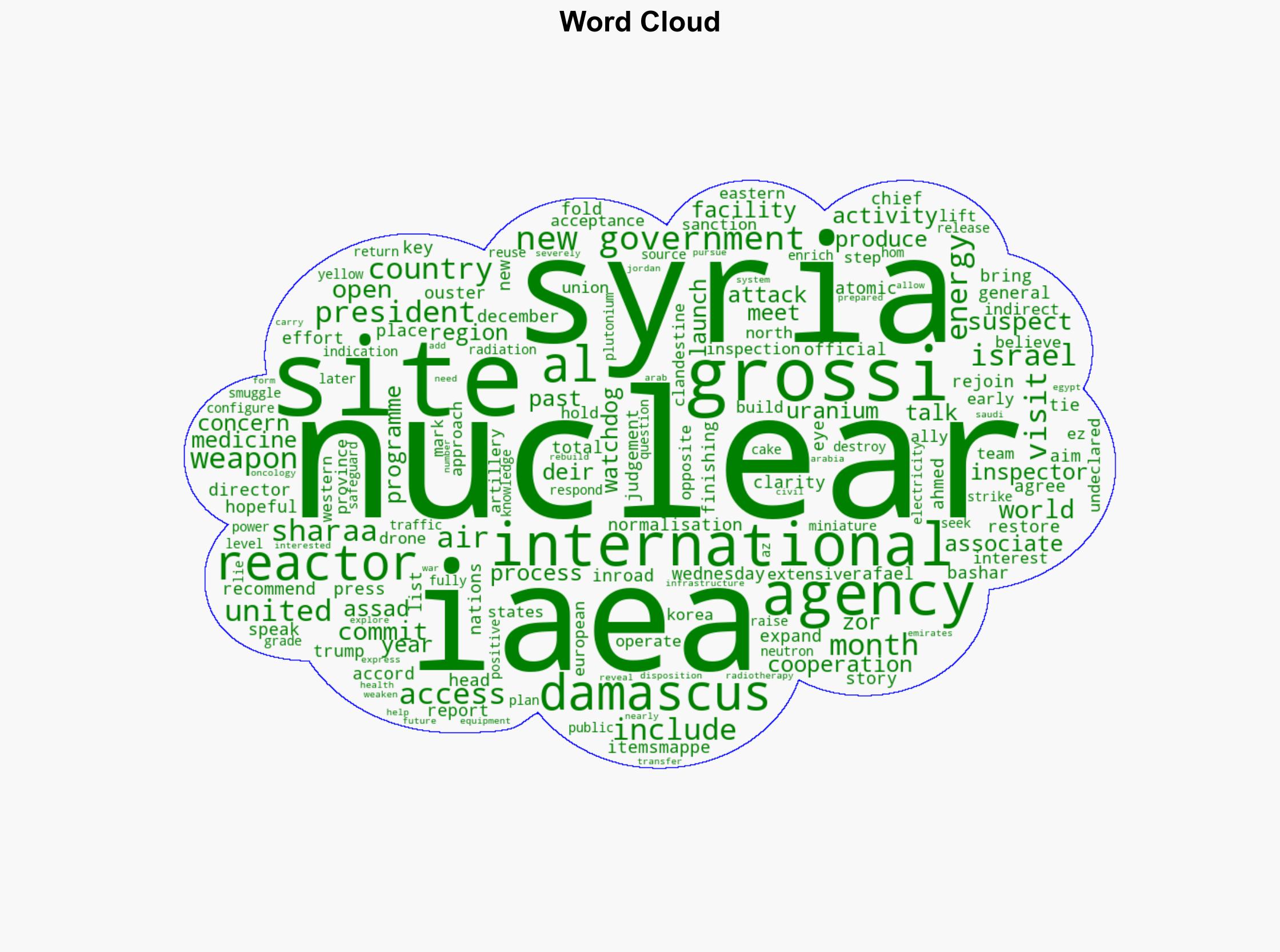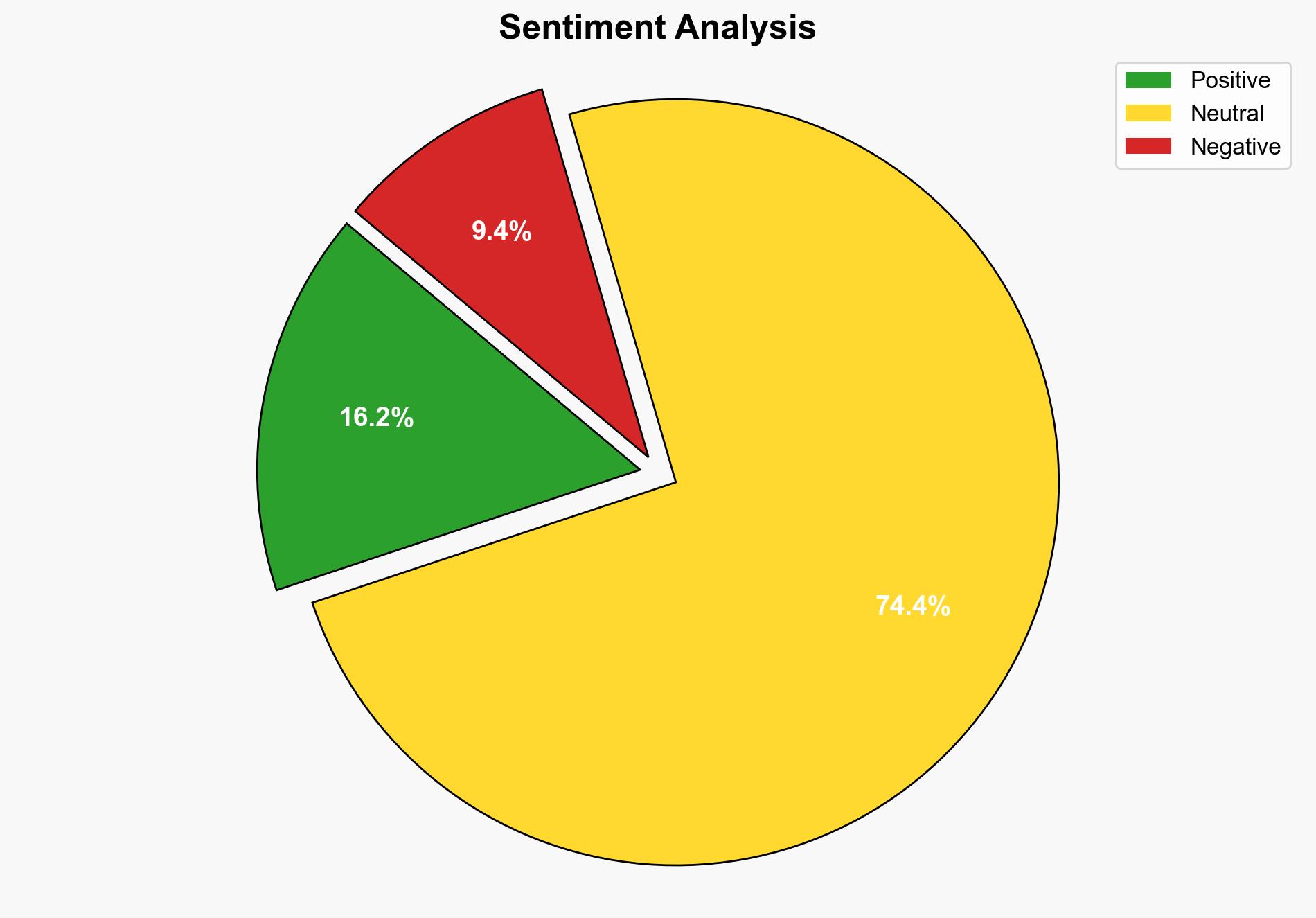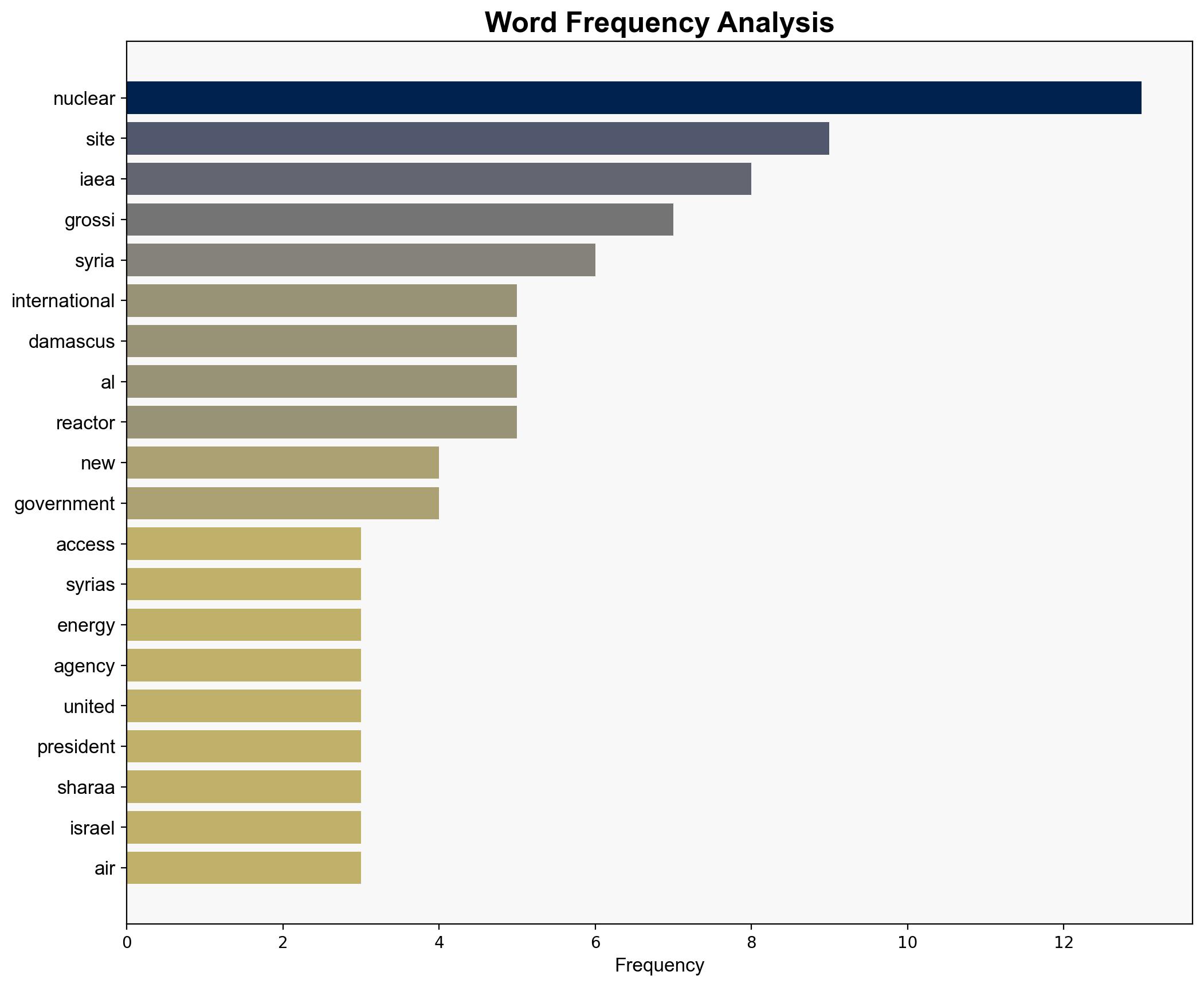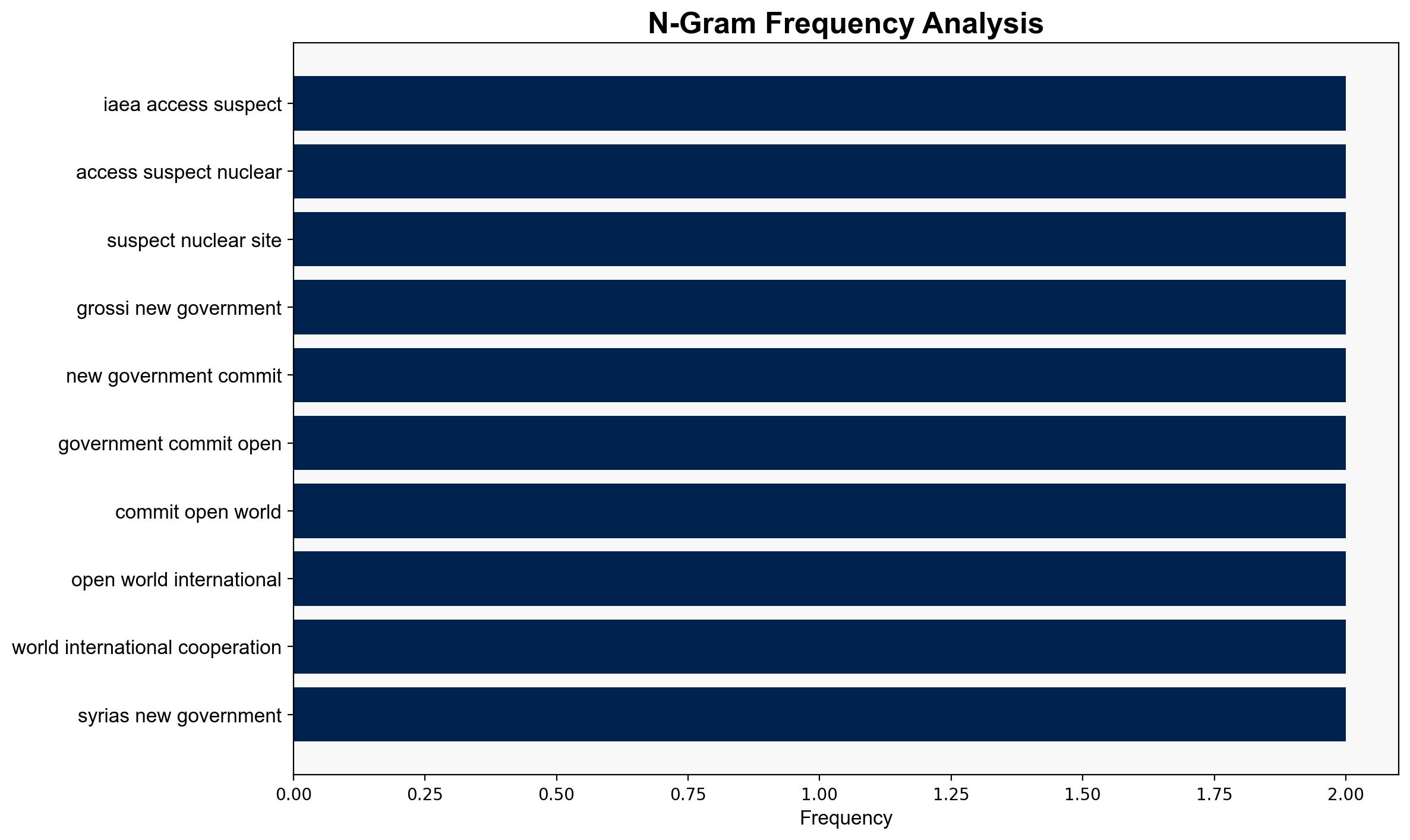Syria to give IAEA access to suspected former nuclear sites Report – Al Jazeera English
Published on: 2025-06-04
Intelligence Report: Syria to give IAEA access to suspected former nuclear sites Report – Al Jazeera English
1. BLUF (Bottom Line Up Front)
Syria’s new government has agreed to grant the International Atomic Energy Agency (IAEA) access to sites suspected of former nuclear activities, marking a significant step towards international cooperation and transparency. This development could influence regional stability and international relations, particularly concerning nuclear non-proliferation efforts. It is recommended to monitor the implementation of this agreement and its impact on regional dynamics.
2. Detailed Analysis
The following structured analytic techniques have been applied to ensure methodological consistency:
Causal Layered Analysis (CLA)
At the surface level, Syria’s commitment to allow IAEA inspections reflects a shift towards international engagement. Systemically, this move may alter regional power dynamics, especially with Israel’s continued military actions. The worldview suggests a potential re-alignment of Syria’s international relationships, while underlying myths of regional nuclear capabilities persist.
Cross-Impact Simulation
The decision may lead to increased diplomatic engagement between Syria and Western nations, potentially easing sanctions. Conversely, it could exacerbate tensions with Israel, which remains wary of Syria’s nuclear intentions.
Scenario Generation
– Best Case: Syria fully cooperates with the IAEA, leading to enhanced regional stability and improved international relations.
– Worst Case: Inspections reveal undeclared nuclear activities, triggering renewed sanctions and regional tensions.
– Most Likely: Gradual improvement in Syria’s international standing with continued scrutiny and cautious optimism from global powers.
3. Implications and Strategic Risks
The agreement poses both opportunities and risks. While it may foster regional stability, the potential discovery of undeclared nuclear activities could destabilize the region. Additionally, Israel’s military actions could escalate if perceived threats persist. Cybersecurity risks may also increase as regional actors seek to gather intelligence on Syria’s nuclear capabilities.
4. Recommendations and Outlook
- Encourage diplomatic engagement with Syria to support transparency and compliance with international norms.
- Enhance intelligence-sharing with regional allies to monitor developments and mitigate potential threats.
- Prepare for scenario-based responses, focusing on diplomatic, economic, and military strategies to address potential outcomes.
5. Key Individuals and Entities
– Rafael Grossi
– Ahmed al-Sharaa
6. Thematic Tags
national security threats, nuclear non-proliferation, regional stability, international cooperation





